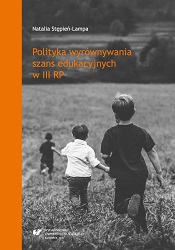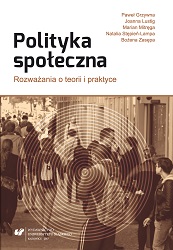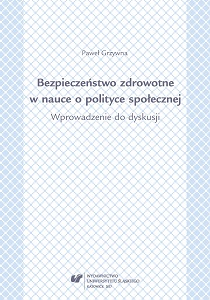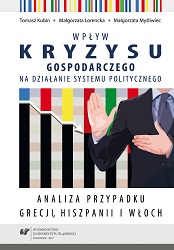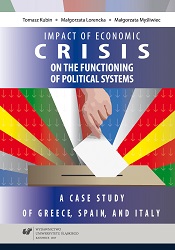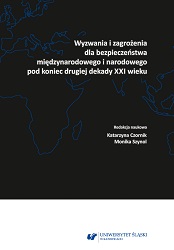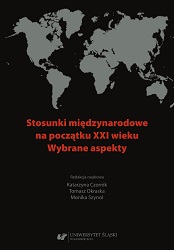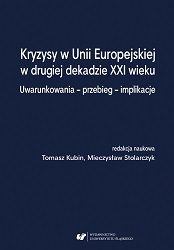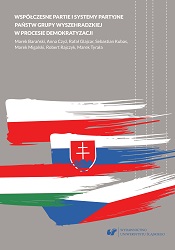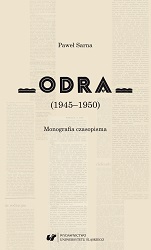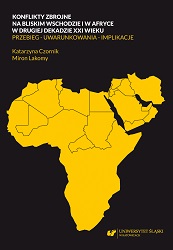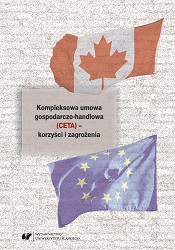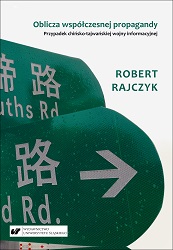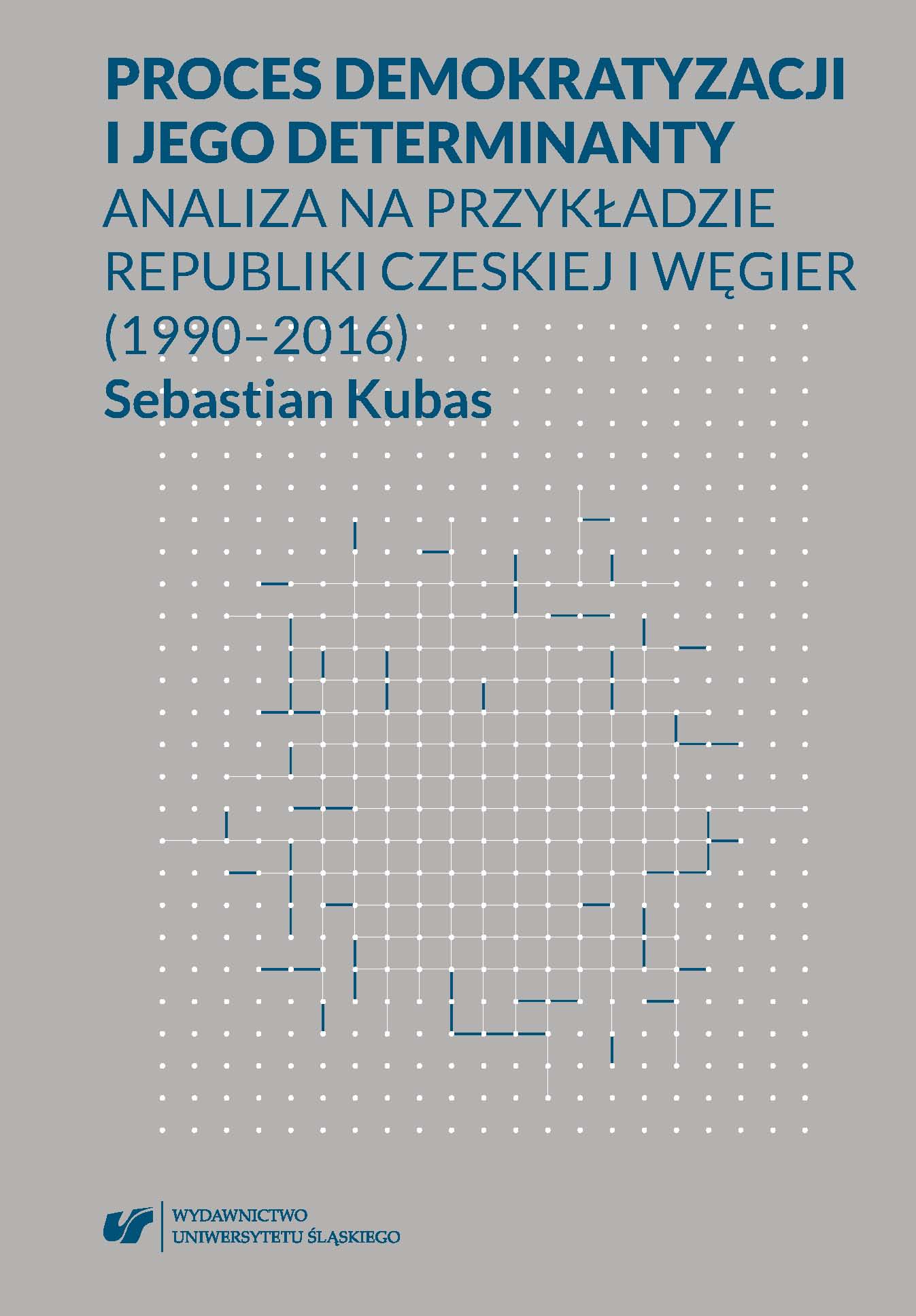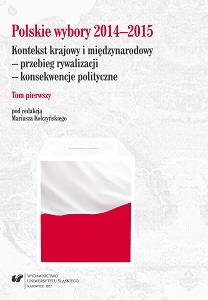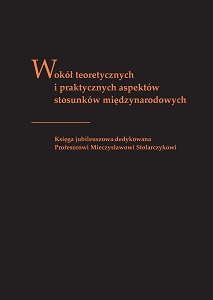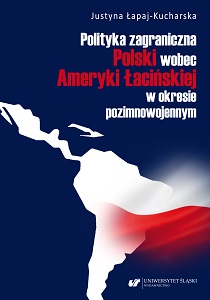Rosja w polityce zagranicznej Polski w latach 1992–2015
Author(s): Mieczysław Stolarczyk / Language(s): Polish
Keywords: the foreign policy; safety; Polish-Russian relations; Foreign policy of Poland; Foreign policy of Russia
The main research aim of this monograph is to distinguish main stages in the foreign policy of Poland towards Russia between 1992 and 2015 and outline their specifics. The author attempted at a synthesis of major manifestations of Polish-Russian cooperation and most sticking points in the intergovernmental (international) relations during that period. An important objective was to show the sources and examples of a divergence of interests, and point to the goals, which were based on these premises, established by the foreign policy-makers in Poland and Russia and pursued in mutual relations and international affairs.Between 1992 and 2015, in Poland’s foreign policy towards the East and national security policy, the relations with Russia and the Ukraine were of utmost importance. On the economic level, considering the volume of mutual trade turnover, Poland’s main partner in the East was the Russian Federation, whereas on the political level, the Ukraine was seen as a strategic partner. Along with the Ukraine, Russia played a key role in Poland’s security policy in the discussed period. It should be emphasized that Polish-Russian and Polish-Ukrainian relations were very closely linked, and so was Poland’s policy towards Russia and the Ukraine. In Poland’s foreign policy towards Russia, or in broader terms, in Polish-Russian relations between 1992 and 2015, seven stages can be distinguished; each having their own characteristic. Despite some new specifics in each particular stage, they all shared an element of continuity. The constant theme was a great divergence of interests between Poland and Russia, particularly with regard to the European security system, and the role of NATO in shaping this security, as well as further stages of the alliance’s enlargement, especially by countries of the post-Soviet area; energy security and Poland’s strive for diversification of fuels supplies faced with Russia’s actions aimed at the diversification of routes of sending its gas and crude oil to Western Europe bypassing the Ukraine and Poland; a historic dispute, in which a thorough, satisfying for the Poles, explanation of the Katyn Forest massacre was particularly high on the agenda among other issues; opposing visions of building anorder in Eastern Europe, and first and foremost, in the Ukraine. With the passing of time, especially after Poland’s NATO and the EU accession, the future of Eastern European countries, particularly the Ukraine and Belarus, has become a fundamental issue in Polish-Russian relations. Both Russia and Poland treated Eastern European countries as a sort of a safety buffer. However, the two countries had entirely different visions of how this buffer ought to be shaped. The political leadership in Poland saw the strenghtening of national security in the strenghtening of the Ukrainian buffer through the Ukraine’s membership in NATO and the EU, whereas for the political leadership in Russia, the strenghtening of national security through Ukrainian buffer meant preserving its outside NATO status, or incorporating it in the the security system built under the aegis of Russia on the area of CIS.A characteristic of the Polish-Russian relations in that period was a great imbalance to Poland’s disadvantage, resulting from the differences in broadly understood physical potential of the two countries and, consequently, their international roles (Poland being a medium-size country situated in Central Europe and Russia being a superpower in Central Eurasia). The capacities of Poland to shape the situation in Eastern Europe on its own were incomparably lower than Russia’s. Therefore, Poland was trying to make use of European and Euro-Atlantic multirateral structures, mainly through the Eastern Dimension realized by the EU and NATO, to have as much influence as possible, on the desired developments in Eastern Europe. The eastern policy under successive RP governments was characterized by their overrating, frequently, of their own capacities, lack of objectivity in assessment of the situation across our eastern border, and application of double standards, particularly in the policy towards Russia.Polish-Russian political relations throughout the post-Cold War period were critical, and improvements were relatively short-lasting. Not only Russia, but also Poland is to blame for such a state of events. The Polish side, due to historical reasons and imbalance of potential, expected Russia to take more initiative in coming to an agreement with Poland. However, it has to be admitted that in many activities undertaken by Poland with regard to European security, in particular Eastern European subregion, the interests of Russia were completly disregarded, although they did not have to be accepted fully. An example of this was Polish diplomacy in the second half of 2013 intended not to allow Russia to be included in the negotiations on the EU association agreement with the Ukraine about issues that had economic implications for Russia’s interests. In their policy towards Russia, foreign policy-makers in Poland, forgot, all too often, or, were unwilling to remember, about the principle that in order to meet the security needs of one’s own country, one should also consider the security needs of other countries, the neighbouring ones in the first place. Analyzing the policies under succesive III RP governments on European security and relations with the post-Soviet countries, it is hard to share the view prevailing in our country that Poland did its best to develop partnership and good neighbourly relations with Russia. Among politicians, publicists and the Polish society, there was a large group of people who took a stance, though it was not always formally articulated, that Poland has a right, or even a duty to remain hostile towards Russia. On the other hand, Russia should not act unfavourably towards Poland, regardless of Poland’s anti-Russian policy, although, obviously, it was declared otherwise.One of the few stages showing a distinct improvement in Poland’s policy towards Russia and a mutual willingness to normalize our political relations, was the one between 2008 and 2010, when an unsuccesful attempt was made at pragmatizing foreign policy towards Russia. Since the end of 2007, this new foreign policy, gradually encompassing other areas, led to a greater or lesser modification of the policy to date towards Russia, the Ukraine, Belarus and Georgia by basing it on the so-called positive realism. These new trends increased cooperation between Poland and Russia and, eventually, a considerable progress was achieved in normalizing our relations. Between 2008 and 2010, Polish policy towards the East not only changed in practice, it was also a conceptual change. The crash of the presidential plane at Smoleńsk (April 10th, 2010), in which 96 peple were killed, including President of RP Lech Kaczyński and His Spouse, was a major, if not primary reason why the normalization process (2008–2010) was seriously hampered to the point of a standstill between 2011 and 2013. The Smoleńsk air disaster, and conflicting stands over its causes in particular, exacerbateddivisions in the Polish society and strenghtened reluctance, if not hostility, towards Russia.A large part of the Polish political class and society did not accept a version of an inadvertent air disaster (plane crash), whose causes, like not following correct procedures, lay on both Poles and Russians. The surveys conducted during the years following the Smoleńsk air disaster showed that over 30% of the Polish society were convinced that it had been an attempt on the life of the Polish delegation en route to a commemoration of the 70th anniversary of the Katyn Forrest massacre, and that the Russian government and secret services had been involved. After the Smoleńsk air disaster, foreign policy towards Russia and Polish-Russian relations became a ground for political struggle in our country. For many politicians and conservatist right-wing journalists, a demonstrated degree of anti-Russian sentiment became the main criterion of patriotism. In a large part of the Polish society, a belief was strenghtened that actions should be taken to weaken and isolate Russia, and to minimize, rather than increase cooperation between the two countries. This meant that internal conditions within our country, which could possibly motivate the foreign policy-makers to stop viewing Russia as the main threat and encourage a breakthrough in thinking about that issue, deteriorated markedly. Consequently, Polish-Russian relations between2011 and 2013 remained in a state of deadlock. In the foreign policy of Poland between 1992 and 2015, Russia played the leading role. This, however, stemmed from Russia being perceived by the policy-makers as the main threat to our national security, not a recognized partner in pursuing this security. Throughout that period, in all successive stages of Polish security policy, Russia was regarded as the main threat. Each political leadership in Poland, especially since the mid 1990s, treated Russia in this way, and these were not merelyanti-Russian declarations, but a guiding principle of the foreign policy. Behind it, was a conviction that Russian imperialism was timeless and Russia would never accept the sovereignty of Poland. It was an obvious reference to the classical Polish geopolitical thought about Russia posing main threats to our national security. During the crisis and conflict in eastern Ukraine, between 2014 and 2015, the foreign policymakers in Poland revived the stance of a military threat on the part of Russia. For the first time since the end of the Cold War, such loud voices were heard about a possible military attack on Poland. Unlike the earlier periods, when there was an informal presumption that Russia was a threat to the security of Poland, in 2014, for the first time, in III RP’s security policy, Russia was formallypointed to as a direct military threat. It was articulated in official state documents, including Strategia Bezpieczeństwa Narodowego Rzeczypospolitej Polskiej from November, 2014, and in addresses delivered by the Polish government officials (for instance in exposé of Foreign Minister R. Sikorski and his follower G. Schetyna).The crisis and conflict in south-eastern Ukraine did not substantially change Poland’s policytowards Russia. What did change between 2014 and 2015, however, was that much more emphasis than ever was placed on Russia being a threat to our national security, and there being a serious risk of a Russian direct invasion of Poland. During 2014 and 2015, the process of politicizing fear (policy of fear) of Russia was at its height. For Poland, a major outcome of the Ukrainian conflict and crisis was decreased national security and growing fears, among them the fear of Russian invasion, which does not mean that such a threat was real. During the years 2014 and 2015, Polish-Russian political relations at the highest level came almost to the point of being frozen. Important direct implications of the Ukrainian conflict forPoland’s security were, apart from a growing fear of Russia, increased desires towards strengthening its own defense capability, strenghtening NATO cohesion, increased involvement of NATO in our sub-region’s security and closer bilateral Polish-American cooperation regarding military security. Resolving the conflict in eastern Ukraine as quickly as possible was in the interests of Poland. However, Polish diplomacy did not engage much in the conflict deescalation. They were very skeptical about the successive agreements aimed at ending the military operations negotiated within the frames of the so-called Normandy format (Mińsk I and Mińsk II). It seems that, considering the geopolitical situation in the Ukraine and divisions of the Ukrainian society, this country should remain a buffer state. Alternatively, coming out of this role should occur gradually, through a simultaneous Europeization of the Ukraine and Russia. Poland should not be interested in the „revolutionary” speeding up of the processes occuring in the Ukrainian society. Responsible politicians willing to serve the best interests of their nation should be aware of the limitations in pursuing even the most support worthy goals. The policy of every country, the foreign policy of Poland and the Ukraine included, should be founded on a realistic assessment of one’s own capabilities so that aspirations would not outgrow the real possibilities of their attainment. Poland, aspiring to the role of the EU main expert in Russian and the post-Soviet area affairs, through insisting in the EU on the earliest possible Ukraine association with the EU, contributed in a way to the situation when the Ukraine had to choose between the EU and Russia. Polish politicians did not anticpate the negative outcomes of such acceleration for the Ukraine itself (including theloss of Crimea and strong separatist tendencies in the East of the Ukraine), as well as for Russian-Ukrainian relations and the security of Poland. Therefore, the firm support and involvement of the Polish political class in the so-called democratic revolution in the Ukraine during 2013 and 2014, can hardly be regarded as a succcess. Polish policy towards the East ended in yet another failure, which was shown as confirmation when Poland was not included in the talks aimed at resolving the Ukrainian crisis, which were held by officials from the Ukraine, Russia, Germany and France since the middle of 2014.The Ukrainian crisis and conflict was a turning point in Polish security policy and Polish-Russian relations. The Polish government officially began to treat Russia as the largest threat to the national and international security. A considerable part of the political elites in Poland did not see the threat in excessive dependence of Polish economy on Russian energy resources or other economic threats, but in a direct military attack. Generally speaking, it is unknown to what extent the Ukrainian crisis and conflict will, in the long run, have an impact on changes in Polish policy towards the East, particularly towards Russia and the Ukraine. It exposed the ineffectiveness of our foreign policy to date towards the East. In this context, a question arises: What will be mid- and long-term implications of the Ukrainian conflict forthe modification or a radical alteration to Polish foreign policy towards the East? Another fundamental question pertains to Polish-Russian relations: What policy should Poland pursue towards Russia now and in the future? Will the foreign policy and security policy be directed,like in 2014 and 2015, at instransigence and confrontation, or will the normalization tendency prevail as regards Russia, and will the relations with the Ukraine be redefined? However, at the end of 2015, nothing implied that the foreign and security policy-makers intended to transform in any way the policy towards Russia and the Ukraine to date. It does not mean that changes will not be implemented in the years to come. It will be closely connected with the impact of the Ukrainian conflict on the modification of the policy of Germany and the entire European Union as well as the policy of the United States on the post-Soviet area.The crisis and conflict in eastern Ukraine strenghtened the legitimacy of argumentation thatthe main player in the post-Soviet area is Russia. None of the serious problems in this area can be resolved without the participation of Russia, and all the more, against Russia, which obviously, does not mean that the proponents of this stance overrate the capabilities of Russia in terms of shaping the closer and farther international environment. On this account, Polish policy will be hardly effective if at least some of Russia’s interests in the post-Soviet area, especially in Eastern Europe, are taken into consideration, as was proven to date. Bearing in mind long-term consquences, the strategic conceptions of the Polish policy towards the East, should opt for the closest possible ties of Russia with political and economic structures of the EU and Euro-Atlantic structures (Europeization of Russia). This, in turn, should result in the evolution of the economic-political system of Russia into liberal democracy.The Ukrainian crisis and conflict classified the effectiveness of the Polish conception aimed atoccidentalizing the Ukraine, Belarus and Moldova without simultaneously occidentalizing Russia. As was indicated by the proponents of this conception, its implementation assumed an inevitable cost such as a political conflict with Russia. The crisis and conflict in the Ukraine between 2014 and 2015 should be a good reason to change this stance. The biggest price for its implementation was paid by the Ukraininas themselves. Therefore, in the context of these experiences, Poland should support such conceptions and actions in the Ukraine which attempt at Ukraine’s integration with the West not in opposition to Russia, but together with Russia, which does not imply that this process has to be fully synchronized. The direction of actions in this matter is of key importance. Despite the many contentious issues in Polish-Russian relations and different historical memory of Poles and Russians, in the long-term interests of Poland’s security, lies implementing a cooperative and integrating, not a confrontational conception. For the normalization of Polish-Russian relations, it is essential that the successive governemnets of Poland and Russia should have a political will to a less confrontational approach towards disputable issues and resolve emerging problems in a compromising way, which is one of the „scarcest commodities” in the Polish-Russian relations. A compromise should not be treated as a failure, as is often believed, also by the Poles. It also requires changes in mutual perception. A true normalization of mutual relations between Poland and Russia will not be possible if the majority of political elites, media and society in both countries will see the other not even as a difficult partner of rival, but an enemy. The divergence of interests does not have to lead to hostility. The governing groups inPoland and Russia face a challenge in improving Polish-Russian relations. They can either attempt to broaden the area of common interests or to highlight the discrepancies and divergence of interests, and thus strenghten social attitudes prone to either cooperation or confrontation.
More...


